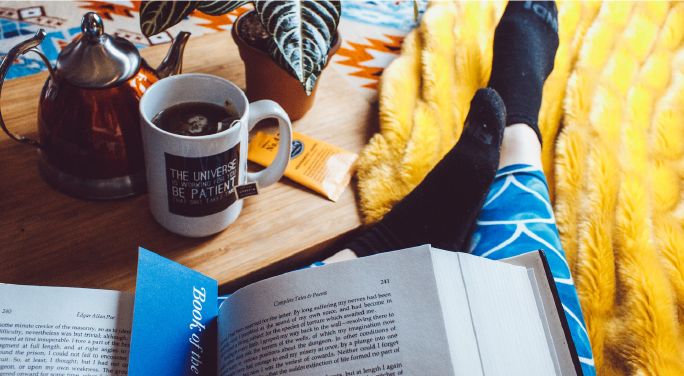
Does your partner say that it sounds like you’re chewing gravel in the middle of the night?
Do you wake up with an aching jaw?
Do you have a dull headache every morning?
Are your teeth just the worn down nubs of what they used to be?
Ok, maybe it’s not that dramatic, but grinding your teeth at night is a common problem. If not treated, it can lead to some pretty dire consequences.
So, let’s talk about it.
Grinding your teeth (scientifically dubbed ‘bruxism’) is exceedingly common. This can happen during the day when you clench your jaw or, most commonly, at night. About 10% of people (and a surprising 15% of children) grind their teeth at night. Most are unaware that they are even doing it. So, here’s a list of symptoms that may indicate you (or your child) is grinding their teeth:
- Headaches
- Aching jaw or face
- Earache
- Disrupted Sleep
- Dislocated jaw
- Popping jawbone
- Scalloped tongue (i.e. indentations on the side of your tongue)
- Mysterious bruises or cuts on your cheek
- Loose teeth
- Cracked teeth
- Pain in teeth
- Flattened teeth
If you or your little one are experiencing any of these symptoms, be sure to consult your dentist or orthodontist to see if you might be grinding your teeth and proceed with the appropriate treatment.
If left untreated, bruxism may result in some pretty nasty consequences. If you think dreams of your teeth falling out are terrifying, try the reality of it. Other possible effects of untreated grinding include:
- Fractured or loose teeth
- New or worsened Temporomandibular Joint Disorder (TMJ)
- Altered Face Shape due to chronically clenching jaw
- Tooth loss
- The need for bridges, root canals, implants, partial dentures, or complete dentures
So, in short, if you grind your teeth, don’t leave those chompers untreated unless you want to join your grandparents in a pudding and applesauce diet.
Now that you know the symptoms and we’ve scared you with the possible ramifications and worst-case-scenarios of leaving this condition untreated, let’s talk about the underlying causes bruxism and what you can do about it.
So why do we grind our teeth?
ANXIETY. The #1 reason for teeth grinding, accounting for about 70% of cases, is STRESS. Yes, right now, we know that our current pandemic has caused a lot of stress for everyone and managing negative feelings can be a tall order.
Make sure to surround yourself with a healthy support system, maintain a healthy diet, schedule time in the sunshine, and set up a regular exercise regimen. If it feels unbearable, remember that therapy is an option.
Cognitive Behavioral Therapy (CBT) and Emotional Freedom Technique (EFT) have been cited as effective treatments for bruxism. There are even several affordable text and phone therapies for those of you in lockdown during quarantine.
Whatever happens, if you’re dealing with anxiety, we feel for you. As part of our RADIUS community, know that we’re behind you. You can and will get through this.
…And don’t forget: peppermint tea with a little honey, a small piece of chocolate, and a good book can do wonders at the end of a long day, even if it’s just temporary.

MEDICATIONS. Certain antidepressants, antipsychotics, and psychotropic drugs have been linked with higher degrees of bruxism. If you are taking any of these and are experiencing teeth grinding, talk to your doctor about alternative treatments or ways to manage the symptoms while on the medication.
DIET. Bad news bears: some of your favorite foods and beverages can be linked to bruxism. Caffeine that makes you jittery, particularly nighttime, or regular consumption of hard foods might promote more clenching. Also, beware of alcohol as it also increases your chance of grinding significantly. For the time being, maybe cut back on your favorite vices.
BAD CHEWING HABITS. Chew on pencils? Smack gum at all hours of the day? Sorry, but this clenching/unclenching routine will only make your bruxism worse.

SMOKING. Yes, you’ve heard it before and we’ll say it again. Don’t smoke! If you smoke you are TWICE as likely to grind your teeth at night. Just don’t do it.
HARD DRUGS. Don’t. Do. Drugs. You know it, we know it. There are a lot worse things than just grinding your teeth that will happen with long-term drug use.
UNAVOIDABLE FACTORS. As with every condition, there are just some underlying causes that simply are not your fault. Age, for one. Bruxism (thankfully!) actually tends to decrease with age. So, if you’re a grinder, there is hope you won’t be one later in life! Also, genetics. If your parents did it, you could very well do it too. Last, certain medical conditions are linked with bruxism such as Parkinson’s, dementia, epilepsy, ADHD, intellectual disability, gastroesophageal reflux disorder, sleep paralysis, sleep apnea and certain psychological conditions linked with chemical imbalance and/or anxiety.
NOW THAT WE’VE TALKED ABOUT WHY YOU MAY GRIND YOUR TEETH, LET’S TALK ABOUT WHAT YOU CAN DO ABOUT IT:
Beyond trying to avoid the above avoidable risk factors and reduce anxiety in general, there are a few other things that you can do to manage your bruxism.
If you struggle with daytime bruxism, try to be aware of when you start and consciously relax your jaw muscles by putting the tip of your tongue between your teeth. This will try the muscles to relax. Also, massaging the TMJ or temporomandibular joint (usually located right in front of the ears) will give you some temporary relief during clenching and help to relax your jaw during stressful moments.
If you struggle with nighttime bruxism, the best practice is to overall try to promote relaxation pre-bedtime. Try putting a warm, damp washcloth on your jaw right before bed to relax your muscles. You could also try using RADIUS “Big Brush” toothbrush with an extra-large brush head to massage your gums during your nightly brushing.
Also….word to the wise! If possible, don’t keep the phone by you when you sleep. Studies have shown that the blue light from your phone suppresses melatonin responsible for regulating your sleep-wake/cycle and that stimulation from your phone before bedtime increases nighttime anxiety and reduces restful REM sleep. So...maybe put away the phone and try a little meditation instead. Relax your mind, relax your body, and sleep better overall.

For more extreme cases of bruxism, talk to your doctor and dentist about using a dental bridge or mouthguard at night to protect your teeth. You can also pursue some alternative methods of treatment such as acupuncture and even Botox, which have both been shown to reduce bruxism.
We know sometimes life can grind you down (pun definitely intended), but it doesn’t also have to grind down your teeth. Try these solutions and *fingers crossed*, you’ll be on your way to a healthy mouth in no time!

In the meantime, RADIUS is here to support you in whatever way we can. Healthy life = healthy smile. ;)

